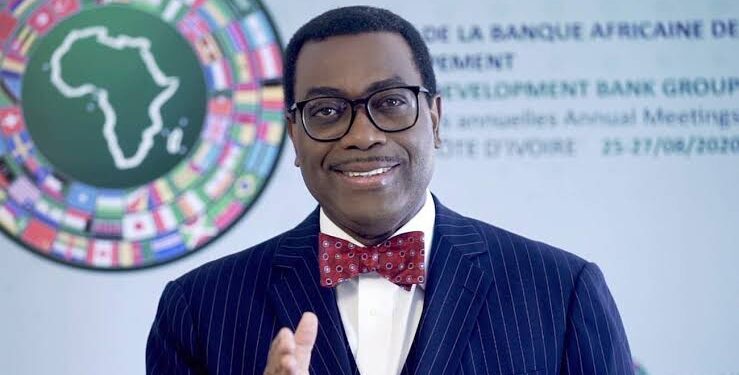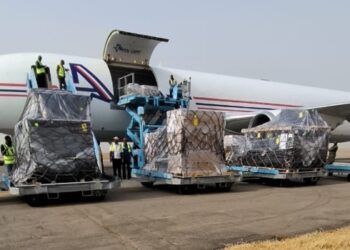As the Donald Trump-led United States enforces a wave of higher tariffs with global implications, President of the African Development Bank President (AfDB) Dr. Akinwumi Adesina, has issued a stark warning that the consequences for Africa could be severe.
He said this could range from widespread inflation to a deepening debt crisis across the continent.
Adesina who laid this bare recently in an exclusive interview with CNN’s Christiane Amanpour, revealed that 47 out of 54 African nations are directly exposed to the new U.S. trade policies, which threaten to erode export revenues and destabilize foreign exchange reserves.
“When those currencies weaken, two things will happen,” Adesina explained. “First, you’ll see rising inflation because most of these countries depend heavily on imports. Second, the burden of servicing foreign currency debt—paid in local currency—will become even more unsustainable,” he added.
Heritage Times HT reports that many African countries now face up to 50% tariffs on a wide range of exports, with nations like South Africa, Lesotho, Mauritius, Madagascar, and Angola among the most affected.
The tariff war introduced by the Trump administration, has already rattled trade flows and heightened financial uncertainty.
The crisis is further compounded by significant reductions in U.S. foreign aid, including USAID-funded medical and humanitarian programs, raising alarm over the deteriorating trajectory of U.S.-Africa relations.
Despite these mounting challenges, Adesina insisted that Africa must not retreat into a trade standoff. Africa represents just 1.2% of U.S. global trade—around $34 billion annually—with only a $7.2 billion trade surplus.
Instead of confrontation, he outlined a three-pronged strategy: engage in “flexible and constructive” trade talks with the U.S., diversify Africa’s export partners, and accelerate implementation of the African Continental Free Trade Area (AfCFTA) to unlock the continent’s $3.4 trillion internal market.
Adesina emphasized Africa’s opportunity to leverage its vast natural resources such as lithium and cobalt, for better trade terms. “Africa is not choosing sides,” he said. “The U.S. is a key ally of Africa—and so is China. Africa is building bridges, not isolating itself.”
Adesina who is fast approaching the end of his second term in September,reinforced his call to move beyond traditional foreign aid. “The era of aid as we’ve known it is gone. What we need now is concessional,” he restated.



































